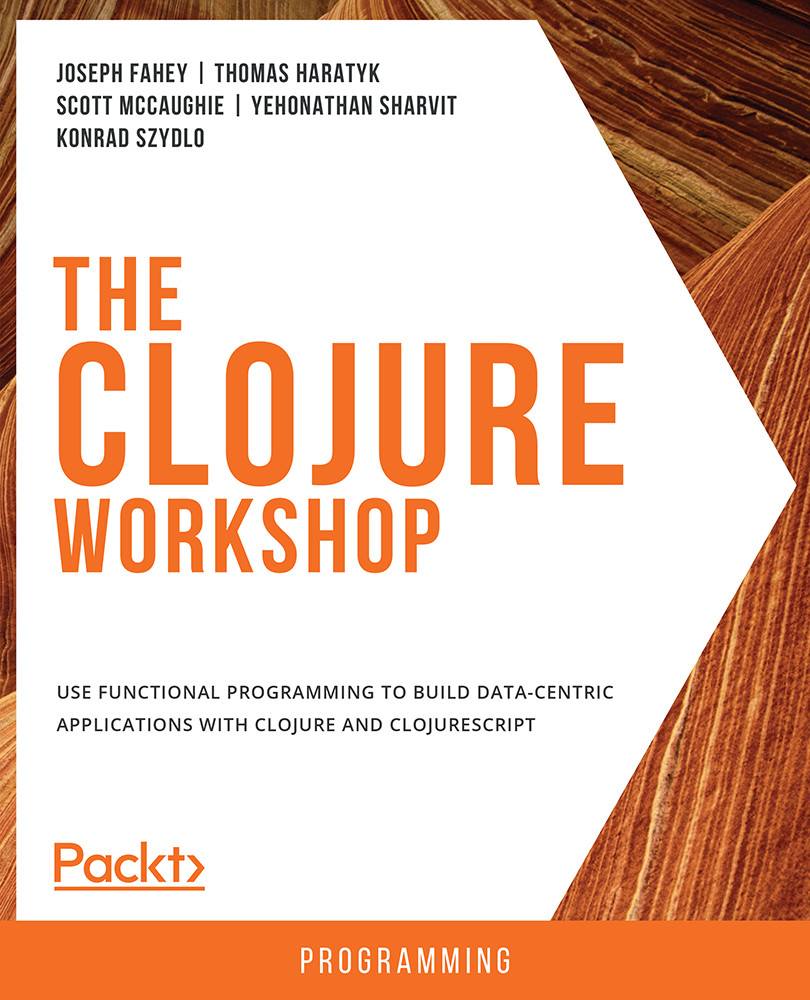-
Book Overview & Buying

-
Table Of Contents

The Clojure Workshop
By :

The Clojure Workshop
By:
Overview of this book
 Free Chapter
Free Chapter
 Sign In
Start Free Trial
Sign In
Start Free Trial


 Free Chapter
Free Chapter
In an ideal world, every program runs without any problems. In the real world, mistakes happen and programs do not run as planned. Errors and exceptions in Java and Clojure are a mechanism for informing developers when such unexpected situations occur.
An error indicates a serious problem that an application should not try to catch or handle. An exception indicates conditions that an application might want to catch. To put it another way, errors are situations from which an application cannot recover. Such conditions could be running out of disk space or memory. If an application runs out of disk space to save data, there is no possibility that this application can serve its purpose. Unless we provide more disk space, the application cannot run successfully. Exceptions are conditions from which an application can recover. Such a condition could be trying to access a list from a database before a connection to the database has been established,...
